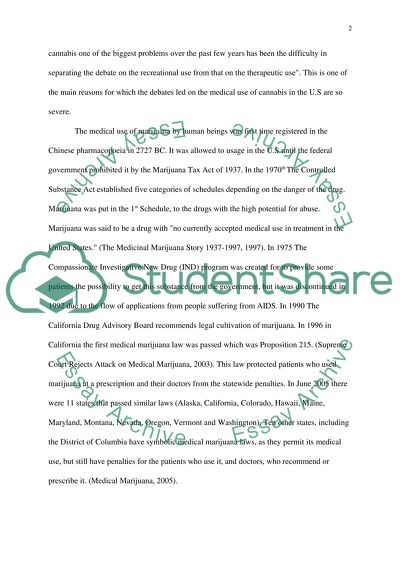Cite this document
(“Legalization of Cannabis for Medical Use Essay”, n.d.)
Retrieved from https://studentshare.org/health-sciences-medicine/1528256-legalization-of-cannabis-for-medical-use-essay
Retrieved from https://studentshare.org/health-sciences-medicine/1528256-legalization-of-cannabis-for-medical-use-essay
(Legalization of Cannabis for Medical Use Essay)
https://studentshare.org/health-sciences-medicine/1528256-legalization-of-cannabis-for-medical-use-essay.
https://studentshare.org/health-sciences-medicine/1528256-legalization-of-cannabis-for-medical-use-essay.
“Legalization of Cannabis for Medical Use Essay”, n.d. https://studentshare.org/health-sciences-medicine/1528256-legalization-of-cannabis-for-medical-use-essay.


